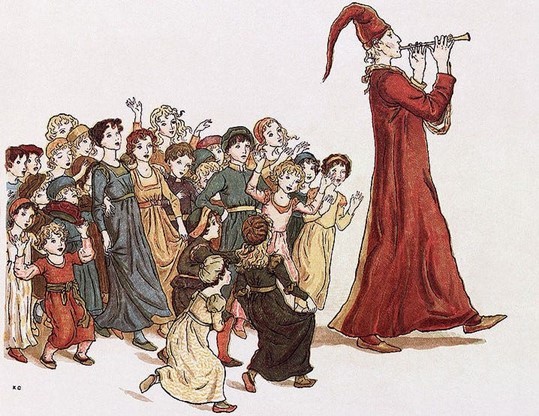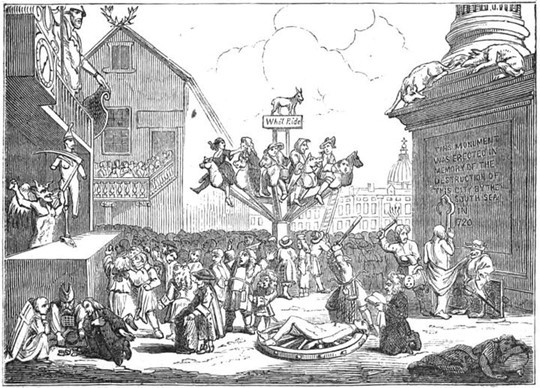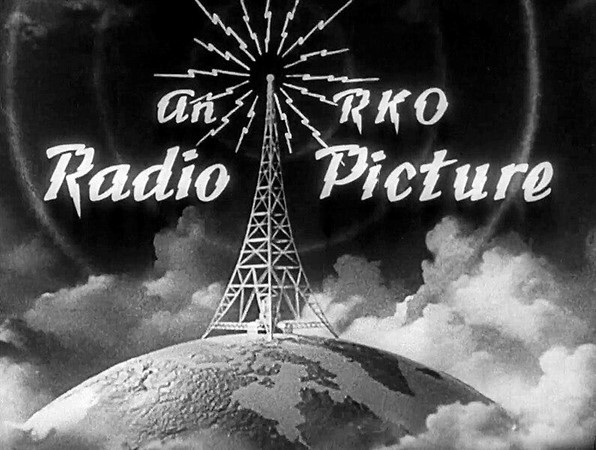
A central theme of my writing down the years has been that the craziest outcomes of post-60s ‘social justice’ – the ones that people scratch their heads about in dismay - mostly originated in the groves of academe. Things like white self-loathing-by-proxy, the fetishisation of sexual dysphoria and pseudo-therapeutic psychobabble began as fictions and fixations hatched in its humanities and social science petri-dishes. A madness of intelligentsias in other words. I have argued that our great folly was failing to foresee the long-term consequences of allowing our universities to become colonised by an intelligentsia intent on ‘cleverly’ unpicking the threads that held Western civilisation together.
My title for this essay borrows from Extraordinary Popular Delusions and the Madness of Crowds: a famous study of crowd psychology written in 1841 by a Scottish journalist Charles Mackay. The term intelligentsia has been somewhat supplanted these days by more memey ones like ‘chattering classes’. When it had more common currency, it used to encompass university- educated scholars, academics, teachers, journalists, and literati, irrespective of their political leanings. In reality, leftism had become the rule and conservatism the exception from the early 20th c. onwards. The massive late 20th c. expansion of tertiary education put this partisanship on steroids. Hence chattering classes is now, of course, a pejorative label used by a conservative minority for that hyper-progressive majority. This progressive intellectual hegemony is the great political-philosophical story of the 20th century and beyond.
But this is only part of a broader story of how, what I have called the madness of intelligentsias leaked out from the groves of academe and spread virus-like, first through the political and then – much more importantly - through the apolitical fabric of Western civilisation. The story, in other words, of its relationship to a 21st c. madness of crowds.
Even if its best days are behind it, Western Liberalism has had a wondrous three-hundred year run. Its technological and entrepreneurial brilliance has made it (and much of the rest of the world) hugely wealthier and healthier. And as Kemi Badenoch (the young British-Nigerian pretender to leadership of the Tory Party) has observed recently, not all contemporary cultures around the world today are of equal value. So the West has every reason to be proud of its civilisational roots. And this begs a huge question of just how and why its richly cossetted chattering class try so hard to make it ashamed of itself?
This progressive intellectual hegemony is the great political-philosophical story of the 20th century and beyond.
This is going to be a long essay and - because I believe overly long essays are a turn-off - I’m going to spread it over two (possibly three) posts. To do justice to my subject I am bound to range wide and deep and sometimes veer off at tangents. So, in order to give more shape and definition to it, I have divided it into the following chapter headings:
The Limitations of Politics
Technological Revolutions in Human Communication
New Elites Emerge but Snobbery Persists
Christianity & Protestantism & Social Justice
Progress & its Discontents
Freedom & its Discontents
Feminisation and Androgynisation
Even then it will inevitably be somewhat broad brush. I like painting a big picture (and I credit myself with being rather good at that) but I am less good at the details and will no doubt get picked up on some of those. I also risk being sometimes misunderstood so I hope you will bear with me. And before I launch in, a brief note-to-self: For us souls out of step with the Progressive zeitgeist, it is important to remember - even as one recoils from most of its post-1960s ‘progress’ - that life is good. Unless you have the grotesque misfortune to be suffering under extreme torture or dementia, life is always good. Better than the alternative.
Chapter 1: THE LIMITATIONS OF POLITICS


So far in Slouching Towards Bethlehem I have avoided planting a political flag on Substack Mountain. The older I’ve become the more wary I am of politics-with-a-capital-P as a perspective from which to look out on the immense complexity of things. The old joke about it being show business for ugly people always brings a smile. Also, I tend to assume that STB’s place in the Substack ecosystem means that most of my readers will, in any case, be broadly in the same ballpark and so I prefer, for the most part, to come at things more obliquely.
One thing written on my ‘flag’ is that I am pessimistic about there being effective political solutions to our Western malaise. I have never read Spengler’s Decline of the West but the idea that every civilisation will eventually – sooner or later - fall apart seems axiomatic... and borne out by history. The laws of entropy will apply...why would an exception be made of Western Liberalism? But equally, any but the vaguest predictions and timescales for that future melt down seem foolish and hubristic. It is surely impossible – given that our personal journey from youthful optimism to elderly nostalgia is but an epocal microsecond – for us to judge exactly where on the great arc of history we currently are. Nevertheless we do it - and I am arguably doing it in this essay.
There are two fundamental ways of thinking about politics - a limited conception and a grandiose one. The limited one is about negotiating disagreements and conflicts of interest among the citizenry. The grandiose one is the utopian idea of bringing about ‘Progress’ by political means. Due to the dominance of this latter conception in the modern era, we in the West have been schooled into an expectation that there is a political solution to every social problem. There isn’t... but the expectation can lead people - especially the most politically engaged kind - down some big rabbit holes.
One of them is a fixation on Something to Blame for our discontents. On the Progressive Left it has propelled endless - mostly counter-productive - social engineering. And now - in our early 21st c. - its oppressor/victim psychosis has run riot giving us the Woke madness we currently endure. Meanwhile on the Right-hand side of the online political ecosystem this Who Can I Blame mentality often leads people to see Wokeness as having been deliberately imposed on us normal everyday citizenry by some-or-other kind of 'elite' (Techno bros, Cultural Marxists, Managerial Elites etc). These ‘elites’ - so the argument runs - are ‘in control’ and must be defeated in order to bring an end to the madness. But this is to seriously misread the nature our 21st c. Western malaise; the most salient feature of which is that it has become out of control by anyone. Rather it is a kind of mass psychosis that ensnares everyone - rich and poor (especially the rich if anything), young and old (albeit in varying intensities).
The reasons why are complex, but the transformation brought about by the internet these past thirty years is one the biggest. The internet age has created what Unherd columnist Mary Harrington has described as a “crucible of political consensus-formation [in a] digital-era of decentralised, self-coordinating, swarm governance”. [More on this in the Transformative Revolutions in Communication Technology chapter]
The ‘imposed on us ordinary folks’ narrative leads conservative commentators to fight shy of confronting just how far the mentality that they abhor has trickled down to society as a whole. There is a tendency to retreat to a more easily negotiable philosophical redoubt; one in which the forces of Wokeness – with all their victimhood, virtue signalling and queering of pitches – are seen as an alien ‘other’ and juxtaposed with a reassuringly ‘great mass’ of sane grown-up people. In this way conservative journalism rarely confronts the true extent of the diffuse trickle down of victim-grievancehood amongst the wider public.
Wokeness is not Marxism in extremis....it is liberal individualism in extremis.
Another mistake is to give too much prominence to the idea of Wokeness as a toxic ideology. Toxic it certainly is but it is a way too confused and self-contradictory one to count as any kind of intellectual system, however wrong-headed. Its essence, rather, is a socialpsychology.... a longstanding disdain of 'educated' white people for their less 'educated' white peers. All the bogus sanctification of 'oppressed' 'identities' is at bottom mostly just a proxy swipe by the self-styled 'virtuous' and 'educated' at their notional 'deplorable' peers. This is a hugely seductive psychology because it makes you feel so superior. Put another way: Wokeness is not Marxism in extremis....it is Liberal individualism in extremis. [More of this in the New Elites Emerge but Snobbery Persists chapter]
In these respects I differ from many of my conservative Substack peers including ones who perspectives I otherwise greatly admire. One perspective that I do share with most other conservative commentators is the realisation that electoral pluralism – as in vote Left-get Left/vote Right-get Right - has, in our time, become something of a farce. This is now more or less received opinion amongst conservative punditry although it took a hell of a long time getting there. Yes, we still get a party-politics psychodrama on legacy media - almost a part of its entertainment industry. Meanwhile 90% of real political decision-making is done by a permanent, almost unchallengeable techno-bureaucracy constantly topped up by 'experts' emerging from its one-party universities.
If there were any hope for ‘politics’ correcting the course of our Western Ship of State, it would be in the good-luck happenstance of a great charismatic leader emerging as a firm hand on the tiller. But I’m not holding my breath and anyway careful what you wish for leader-wise. Hitler and Mao were charismatic leaders too - although it is worth also keeping in mind that such bad luck leaders were mostly a reflection of the zeitgeist from which they emerged. These mega-demons would have been nothing without the tens/hundreds of millions of favour-seeking, grudge-bearing ordinary folk seduced by their snake oil. Margaret Thatcher was my idea of a good luck, shape-shifting leader. Le Kuan Yew was another. Uncomfortable as it may feel to many, Donald Trump is a kind of shape-shifter too – in a good way in some respects; much less so in others. But enough already of the Political.
If you are enjoying this essay please share it with friends
Chapter 2: TECHNOLOGICAL REVOLUTIONS IN HUMAN COMMUNICATION

It would be hard to overstate the transformative impact of the internet on our modern world. One way to get a sense of this transformation is to imagine the planet suddenly deprived of it. For us in the developed world, all industry and commerce would stop, all public services and utilities would stop; water would not come out of the taps, road, rail and air transport would stop. Nothing would work - literally nothing - I could go on but you get the idea. Fortunately, the internet is not down and in this essay I am able to discuss how it has turbocharged a cultural shape-shift that began with the earlier mass-media technologies of radio and television.
Before the age of mass media, most people knew relatively little of the world beyond their direct experience but, what they did know, they knew more intimately. Yes, such knowledge was still subject to myth, rumour, malicious gossip and Chinese whispers but it was at least possible for the sane, sober individual to be ‘well informed’ about this more confined, localised universe.Information about the big wide world beyond was a scarce resource. With the advent of the radio and television technologies of the 20th c. this started to change. People began to pick up a mass-mediated bag of abstracted ‘knowledge’ and ‘opinions’ about the wider world including – crucially - things they were not that interested in. It was the beginnings of a kind of global fashion-opinion clothes shop.
Being truly well-informed still required dogged curiosity and legwork (searching in libraries etc). The internet has radically altered all this with profound consequences that we as a civilisation have hardly yet begun to come to terms with. Now abundant information is available in seconds. Whatever failings can be levelled at Google (particularly its recent Leftist ideological capture), the invention of the search engine thirty-odd years ago has been an absolute marvel for those able to maintain an intellectual balance between curiosity and scepticism. But it’s also been disastrously disorienting for others... especially the very young.
People began to pick up a bag of ‘knowledge’ and ‘opinions’ about things they were not even that interested in.
It has created a different problem for the would-be informed citizen. The gigantic 'supply' of digital information/disinformation coming at you now greatly exceeds both the demand for it and one's ability to properly process it. Digitised mass media – and more especially social media - has deluged people with an 'information' overload of a scale that even the most informed struggle to intelligently parse and filter. To take one fairly trivial example: with enough internet searching one can discover that virtually every kind of food is good for you....and that it is bad for you. Same with most kinds of physical activity and almost every kind of pharmaceutical pill. And into this information/disinformation supply-side log jam, along came Facebook et al....a social media party-time, tailor-made for the uncurious and suggestible.
The focus of most conservative discourse about mass media is on its effects on the politically engaged....politicos, activists and pundits. But it is a salient feature of our media-soaked times that the semi-apolitical and politically apathetic (who are after all the great majority of us) nevertheless come to pick up – barely even noticing it - ‘opinions’ about all sorts of stuff that they are not even particularly interested in. In this way the ‘problems’…. of global warming; of racism, sexism, ‘homophobia’ ‘Islamophobia’ et al become insidiously axiomatic....as in “Yeh, everybody knows about that.”
In order to genuinely have a 'belief' about something - impending climate catastrophe or ‘systemic racism’ for example - one would need to have invested a deal of energy in weighing evidence of these things. But how many actually do this as opposed to simply noticing the social signals about what is the most favoured opinion... with benefits? These words by the Australian political theorist, the late Kenneth Minogue, written in 2005 about journalism were also prophetic about its digital future: “One dimension of how journalism affects the way we think is our propensity to become bored. Someone who is focussed on the novelty of events as they unfold in the newspapers is to that extent less reflective about the events to which he responds. The details of change crowd out the time and energy that would otherwise go into reflection..... People become, in a word, shallow. Here then is a new form of consciousness evolving under the spur of improving technology.”
People have of course always indulged in folklore fairytales about the world beyond their daily ken. But in days of yore these used to be kept for round the fire when the day's work was done. Now in our age of mass/social mediated "reality", fairytales can be 24/7. [I have written in this previous essay about film and tv drama as a kind of super-spreader of politically correct ‘reality’.]
Social Media as a Global Town Square: A perceptive piece by Times columnist James Marriott eloquently put the case that Elon Musk’s concept of TwitterX as a great Global Town Square - whilst on the face of it a highly attractive idea - could, counter-intuitively in fact be a terrible idea: “The idea that society needs a town square is a fallacy of recent invention. It is not necessary that citizens debate with one another on digital networks of vast scale. Successful democracies require voters to live in relative ignorance of one another.... Social media offers conservatives infinite opportunities to become infuriated by the eccentricities of poly-gendered humanities PhD students with whom they would never otherwise come into contact.” This is well said... and goes right to the heart of basic philosophical questions about how a society can best cohere and its people co-exist in relative peace and harmony. But it also poses – albeit implicitly - an awkward look-in-the-mirror challenge to Western Liberalism’s cherished image of itself.
Power to the One-track Minded: It is in the nature of mass media and social media to afford a disproportionate 'voice' to the politically obsessed, one-track-minded, 'activists', mouthy narcissists and the permanent malcontents among us. Anyone who has actually got a reasonably balanced life is far less likely to be a media-type of person.
In this way the cherished belief system of the hyper-liberal comes to be absorbed in insidiously diluted form by almost everyone. And even when people do notice it, the fact that they do not live their lives obsessed by ‘the real issues’ means that they will just passively allow it all to wash over them. I pick out just these major examples.
· hugely inflated perceived demographics of homosexuality and other sexual dysphorias against all the statistical evidence. Most bizarrely a transgender media fad (affecting ten years back around 0.0001% of the population) now getting so much traction basically because it is such good media click-bait
· uncritical toadying about Islamic culture.
· an omerta on statistical evidence about the ethnic demographics of violent crime.
I’ll round off this chapter on a more positive note. To my mind the form of communication least vulnerable to corruption by the hyper-progressive ‘swarm mentality’ is the novel. It is dead easy to talk 100% pc nonsense at parties, on social media and in journalism... much harder to sustain it through 200 to 400 pages of a novel.